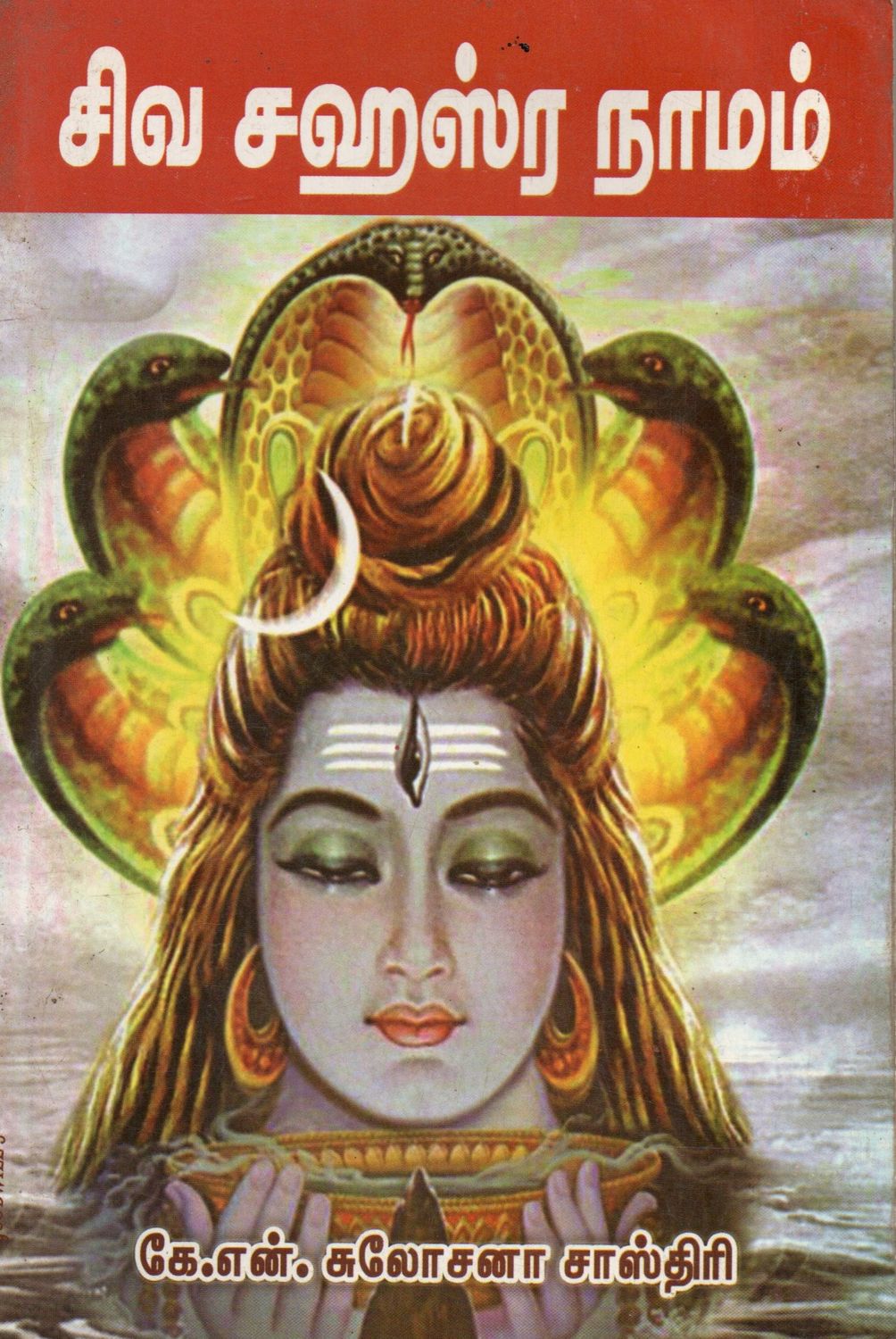Shiva Sahasra Namam (Tamil) Old Book
The Shiva Sahasranama (Sanskrit: शिवसहस्रनाम) is a sacred hymn that lists 1,000 names of Lord Shiva. The term "Sahasranama" literally translates to "a thousand names" ("Sahasra" meaning thousand, and "Nama" meaning name). This devotional hymn, or stotram, is a powerful way for devotees to praise and meditate on the many attributes and forms of Shiva, a principal deity in Hinduism and the supreme being in the Shaivism tradition.
Origin and Versions
The Shiva Sahasranama is not a single, monolithic text. Different versions of the hymn are found in various Hindu scriptures, which highlights its widespread reverence and importance across different traditions. The most well-known versions are:
- Mahabharata: One of the most prominent versions is found in the Anushasana Parva of the epic Mahabharata. In this version, Bhishma Pitamaha, on his deathbed, recites the names to Yudhishthira.
- Linga Purana: This text contains two different versions of the Shiva Sahasranama.
- Shiva Purana: Another version is included in this major Purana dedicated to Lord Shiva.
Each version, while containing many of the same names, may have a slightly different arrangement or include unique names, offering a distinct perspective on Shiva's divine qualities.
Significance and Benefits
Chanting or listening to the Shiva Sahasranama is considered a highly meritorious spiritual practice with many benefits, according to Hindu tradition. These benefits are said to be both spiritual and material:
- Spiritual Growth: Chanting the names is believed to purify the mind, wash away sins, and help in the destruction of negative karma. It deepens a devotee's connection to Shiva and is a powerful aid in the path toward self-realization and ultimate liberation (moksha).
- Mental and Emotional Well-being: The rhythmic recitation is thought to calm the nervous system, reduce stress and anxiety, and promote inner peace, mental clarity, and focus.
- Protection and Prosperity: It is believed that chanting the Sahasranama with devotion can grant divine protection from negative influences, fulfill desires, and bring success, wealth, and prosperity into one's life.
The 1,000 names each represent a different facet of Shiva's personality—from his gentle, benevolent aspects as Shankara (giver of joy) to his fierce, destructive forms as Rudra (the terrifying one). By reciting these names, devotees are able to contemplate the entirety of the divine, all contained within the one form of Lord Shiva.

